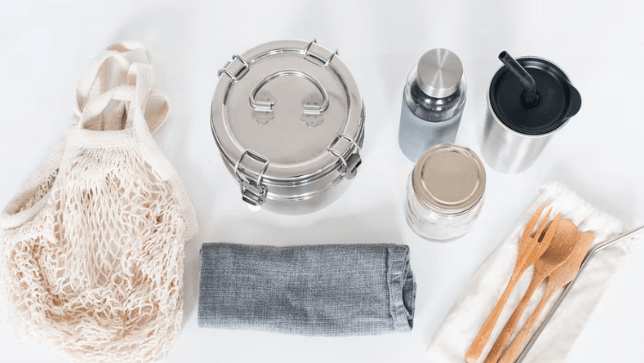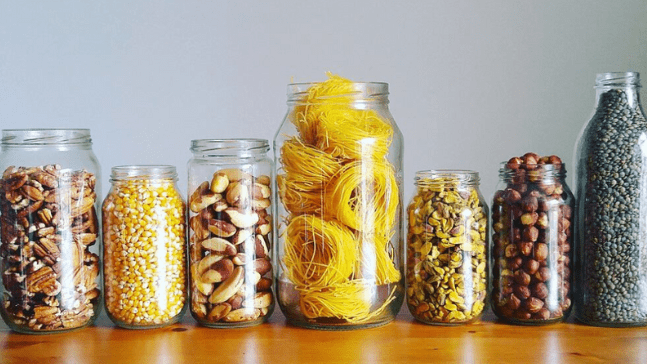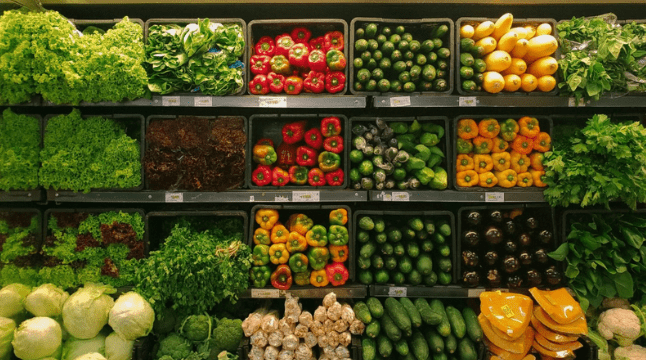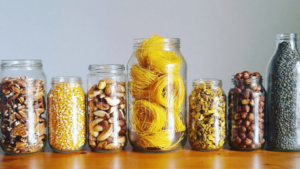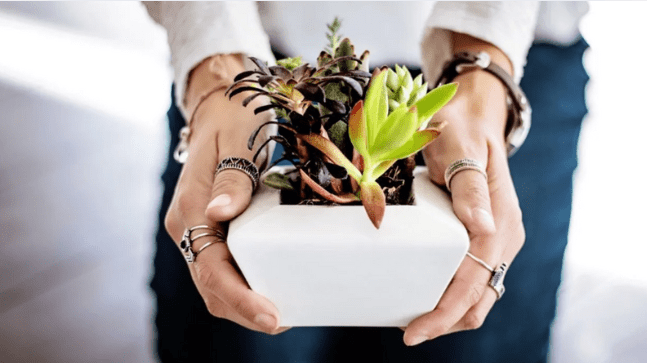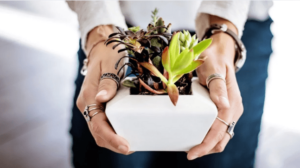We all create waste every day: some of it we can’t help, much of it we can avoid. Now picture how you can elevate your own daily life through low-waste habits that minimize your trash, conserve resources and help others adopt greener living. Developing low-waste habits is not about being a perfectionist, it’s about making progress, being mindful, and making sustainable choices that, when added together, make a sizable environmental impact. Going low-waste is a gradual process that takes time and intention, but you can start the switches with this book from The New York Times bestselling team behind GOING VEGAN.
Adopt Reusable Bags Everywhere
Plastic bags are among the greatest sources of landfill and ocean pollution. Bring your bags (reusable bags made out of cotton, hemp or recycled materials, that is) every time you shop. And make sure to have extra bags in your car, purse or backpack so you never forget them. This small act cuts down the waste footprint in a tremendous way by doing away with single-use plastic bags.
Say No to Single-Use Plastics
Say no to disposable plastic items like straws, cutlery, cups and water bottles. Opt for reusable options like metal or bamboo straws, stainless steel or glass water bottles and portable cutlery sets. These swaps keep tons of plastic from being added to landfills and oceans, and they often work out to be cheaper in the long run as well.
Practice Mindful Shopping
Check the list before buying and only buy what you need, selecting items with little or biodegradable packaging. Shop at bulk stores where you can bring your own containers for your grains/nuts/spices. Prefer regional and seasonal fruits and vegetables to minimise the need for packaging and carbon consumption for transport. Thoughtful shopping reduces waste, and helps preserve sustainable supply chains.
Compost Organic Waste
Food scraps and yard waste together currently make up about a fifth of what people throw away and can be composted instead to nourish the soil naturally. Start a compost bin at home or join your local community composting program. Composted trash is also diverted away from landfills, cuts down on methane-gas emissions and enriches soil as nutrient-heavy compost.
Opt for Refillable and Concentrated Options
Make the switch to refillable household products such as cleaning supplies, shampoo and soap to reduce packaging waste. They use less water and less packaging, they are more concentrated and they usually cost less. Plenty of stores have refill stations and are available via refill pouches online, so this habit is both convenient and sustainable.
Fix, Reuse and Recycle
Before you throw away broken or old items, look at fixing them up or reusing them in new ways. Change a garment, electronics and home appliances instead of purchasing a new one. Upcycling gives things we throw away a second lease on life while offering a fun, inexpensive means of creative expression.
Carry a Zero-Waste Kit
Get a small kit that includes reusable water bottle, cutlery, straw, shopping bag, and a cloth napkin. This set is handy so you can say no to disposables when dining out, shopping or traveling: it is a good way to affirm your low-waste lifestyle.
Bulk, Secondhand Shopping to Reduce Packaging
Fortunately, food, like anything else, tends to offer plenty of opportunities to shop in bulk and secondhand, in addition to helping out the environment by reducing your packaging.
Purchase products in bulk and opt for second-hand items to save on packaging waste and resources. Bulk buying reduces the amount of packaging per item, and secondhand shopping extends the life of items, thus reducing the need for new production.
Opt for Organic Personal Care Items
Choose bar soaps, shampoo bars and toothpaste tablets over bottled liquids. These can be plastic-free or provided in biodegradable packaging, and are a means to refuse single-use plastic waste. Most are made with natural, nontoxic ingredients that are healthier for you and the environment.
Reduce Paper Waste
Go with digital bills, receipts and documents to reduce paper usage. Opt for cloth napkins and towels instead of throwaway paper goods. When you paper, recycle conscientiously, and always select recycled paper goods.
Conclusion
Building recurring low-waste habits into your routine is an effective way to lower your impact and live more sustainably. “Little, everyday actions such as toting around reusable bags, composting food waste, selecting refillable products, and being a more conscious consumer all matter enormously.” These small acts of consideration for the planet also save money, declutter and create a deeper relationship with the world around you. Pick up one or two habits from this list and see how your dedication to low waste changes your life and influences others around you.
FAQs
Q1: Is it hard for you to practice low waste on a day-to-day basis?
It’s also something: The small and incremental actions can be the gateway to long-term, sustainable change.
Q2: Where are the refill stations or zero waste stores?
Local zero-waste shops are present in many cities, and refill products are available online.
Q3: What can I do if I don’t have a backyard to compost?
Search for community compost programs or experiment with indoor composting using techniques like worm bins or bokashi.
A4: Do low-waste habits save me money?
Yes, not continually purchasing disposable options and purchasing in bulk usually saves you money.
Q5: How do I get family and friends to be more low-waste?
Lead the way, share, and make it a fun and easy experience for others to join.


